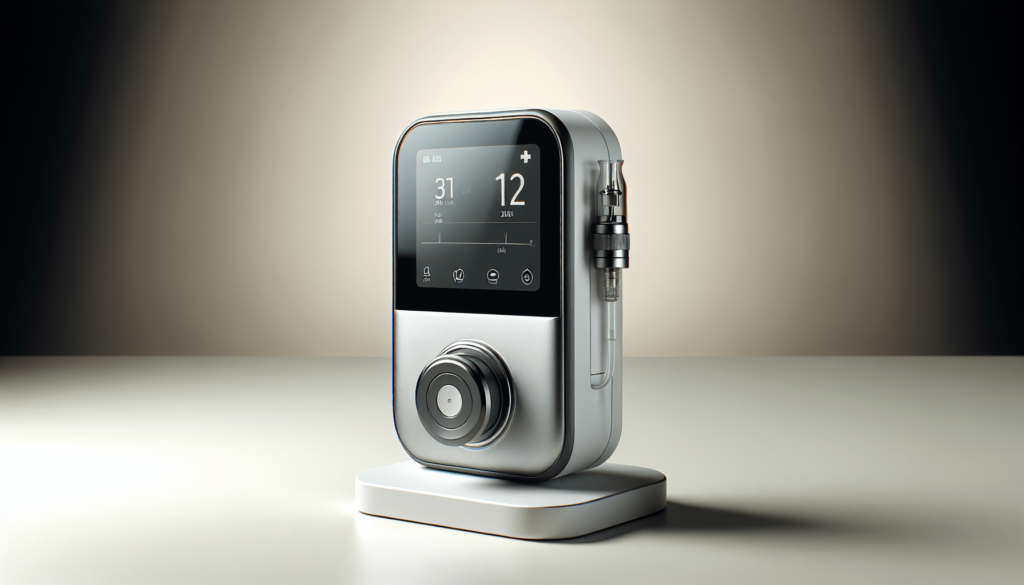Have you ever wondered if you can use an Erectile Dysfunction (ED) pump while on medication for depression? It's a question many individuals find themselves asking, often feeling uncertain about mixing depression treatments with solutions for ED. Navigating through this can indeed be a bit overwhelming, but let's break it down together. This article offers a friendly, comprehensive approach to understanding how your mental health medication may interact with ED treatments, specifically ED pumps.
Understanding Erectile Dysfunction (ED) Pumps
What is an ED Pump?
An ED pump, also known as a vacuum erection device (VED), is a non-invasive mechanical device designed to help men achieve and maintain an erection. It consists of a cylindrical tube that fits over the penis, a vacuum pump that removes air from the tube, creating pressure, and a constriction ring that slides onto the base of the penis to maintain the erection.
How Does an ED Pump Work?
The mechanism is fairly straightforward. By creating a vacuum around the penis, the device draws blood into the erectile tissues. The constriction ring then keeps the blood from flowing out, allowing for a maintained erection. This method can be quite effective, particularly for those who prefer non-pharmaceutical solutions.
Benefits of Using ED Pumps
ED pumps offer several benefits, including:
- Non-Invasiveness: No need for surgery.
- No Medication Side Effects: Avoids complications associated with oral ED medications.
- Cost-Effective: Generally a one-time purchase.
- User-Controlled: Gives users control over when to initiate an erection.
Depression and Its Medications
What is Depression?
Depression is a common but serious mood disorder characterized by persistent feelings of sadness, hopelessness, and a lack of interest or pleasure in activities. It can affect your physical health and day-to-day functioning.
Common Medications for Depression
Depression is often managed with a variety of medications including:
| Medication Type | Examples | Common Uses |
|---|---|---|
| SSRIs | Prozac, Zoloft, Lexapro | Increases serotonin levels in the brain |
| SNRIs | Cymbalta, Effexor | Increases serotonin and norepinephrine |
| Tricyclics | Elavil, Pamelor | Older class, multiple effect mechanisms |
| MAOIs | Nardil, Parnate | Blocks breakdown of neurotransmitters |
| Atypical Antidepressants | Wellbutrin, Remeron | Works through various mechanisms |
Side Effects of Depression Medications
While these medications can be life-changing, they also come with potential side effects. Common ones include nausea, weight gain, decreased libido, and in some cases, sexual dysfunction like ED. It's essential to discuss these side effects with your doctor to find the most suitable medication for you.

Interplay Between Depression Medications and ED Pumps
How Depression Medications Might Affect Sexual Function
Depression itself can contribute to ED, but many antidepressants also list sexual dysfunction as a side effect. This can be highly frustrating and counterproductive for those who are already struggling with mental health issues.
ED Solutions While on Antidepressants
When dealing with both depression and ED, you must address both issues. ED pumps offer a plausible solution as they are mechanical and do not interact pharmacologically with antidepressants. However, it’s always wise to consult with your healthcare provider before starting any new treatment.
Possible Concerns and Safety Measures
When using an ED pump while on antidepressants, here are some concerns and safety measures:
- Physical Strains: Ensure the device is used according to instructions to avoid physical trauma.
- Mental Strain: Be mindful of any increased anxiety or stress due to using the device and share these concerns with your healthcare provider.
Consulting Your Healthcare Provider
The Importance of Open Communication
Discussing your ED with your healthcare provider while on depression medication is crucial. They can help tailor a treatment plan that addresses both issues without worsening either condition.
Specific Questions to Ask
When consulting your doctor, consider asking the following:
- How might my depression medication influence my ED symptoms?
- Are there alternative antidepressants that have fewer sexual side effects?
- Is it safe for me to use an ED pump, given my health conditions?
- Are there any specific usage guidelines I should follow with an ED pump?
- How can I monitor for potential problems when using an ED pump?
Adjustments in Treatment
Your healthcare provider might suggest adjustments, such as:
- Changing Medications: Switching to an antidepressant with fewer sexual side effects.
- Dosage Modifications: Adjusting the dosage might alleviate ED symptoms.
- Combined Therapies: Utilizing therapy while adjusting pharmacological treatments for better overall efficacy.

Practical Tips for Using an ED Pump
Steps for Proper Usage
Using an ED pump correctly can significantly enhance its effectiveness and safety:
- Read Instructions: Thoroughly read and understand the user manual.
- Lubricate: Apply a water-based lubricant on the edge of the cylinder to ensure a good seal with your skin.
- Create Vacuum: Pump according to the instructions to draw blood into the penis.
- Use the Constriction Ring: If the pump comes with a constriction ring, place it at the base of the penis to maintain the erection.
Maintenance and Care
Regular maintenance can prolong the life of the ED pump and keep it safe:
- Cleaning: Clean after every use with warm soap and water.
- Inspection: Regularly check for wear and tear.
- Storage: Store in a cool, dry place.
Recognizing Problems
Be aware of potential issues like:
- Discomfort or Pain: If you experience pain, stop using the pump and consult your doctor.
- Skin Irritation: Lubricate adequately to avoid friction and irritation.
- Overuse Risks: Avoid over-pumping to minimize the risk of damage to penile tissues.
Lifestyle Considerations for Overall Health
Diet and Exercise
Maintaining a balanced diet and regular exercise can improve both mental and sexual health. Incorporate foods rich in antioxidants, fibers, and proteins. Activities like walking, jogging, or yoga can boost your overall well-being.
Mental Health Practices
Practicing mindfulness, meditation, or engaging in hobbies can alleviate stress and improve your mental state. Complement these activities with therapy or counseling if needed.
Healthy Communication
Discussing your conditions with your partner can foster understanding and support. This transparency can reduce stress and enhance intimacy, which is beneficial for both your sexual and mental health.

Alternative and Complementary Treatments
Psychological Counseling
Therapies like cognitive-behavioral therapy (CBT) can address both depression and ED. Counseling can help you develop healthy coping mechanisms and relationship skills.
ED Medications and Their Interactions
Beyond ED pumps, oral ED medications (e.g., Viagra, Cialis) are popular, but their interactions with antidepressants vary. Always discuss these options with your healthcare provider to avoid adverse effects.
Natural Supplements
Some seek out natural supplements like ginseng or L-arginine for ED. While these may offer some benefits, confirm their safety and efficacy with your healthcare provider, especially if you're on medication for depression.
Cutting-Edge Treatments
Innovations like low-intensity shockwave therapy or P-Shot (Platelet-Rich Plasma therapy) are emerging treatments for ED that could be worth exploring with professional guidance.
Conclusion
Using an ED pump while on medication for depression is generally considered safe, but requires careful consideration and consultation with your healthcare provider. By understanding both your depression treatment and ED solutions, you can effectively manage both conditions. Open communication, counseling, and lifestyle modifications form a comprehensive approach to improving your overall health. Balancing mental and sexual health is attainable, and being informed is the first step.
By addressing both your mind and body, you can navigate these challenges more confidently. Feel empowered to discuss any concerns with your doctor and partner; they are there to support you. Remember, it's about finding a balanced, healthy approach that works best for you.


